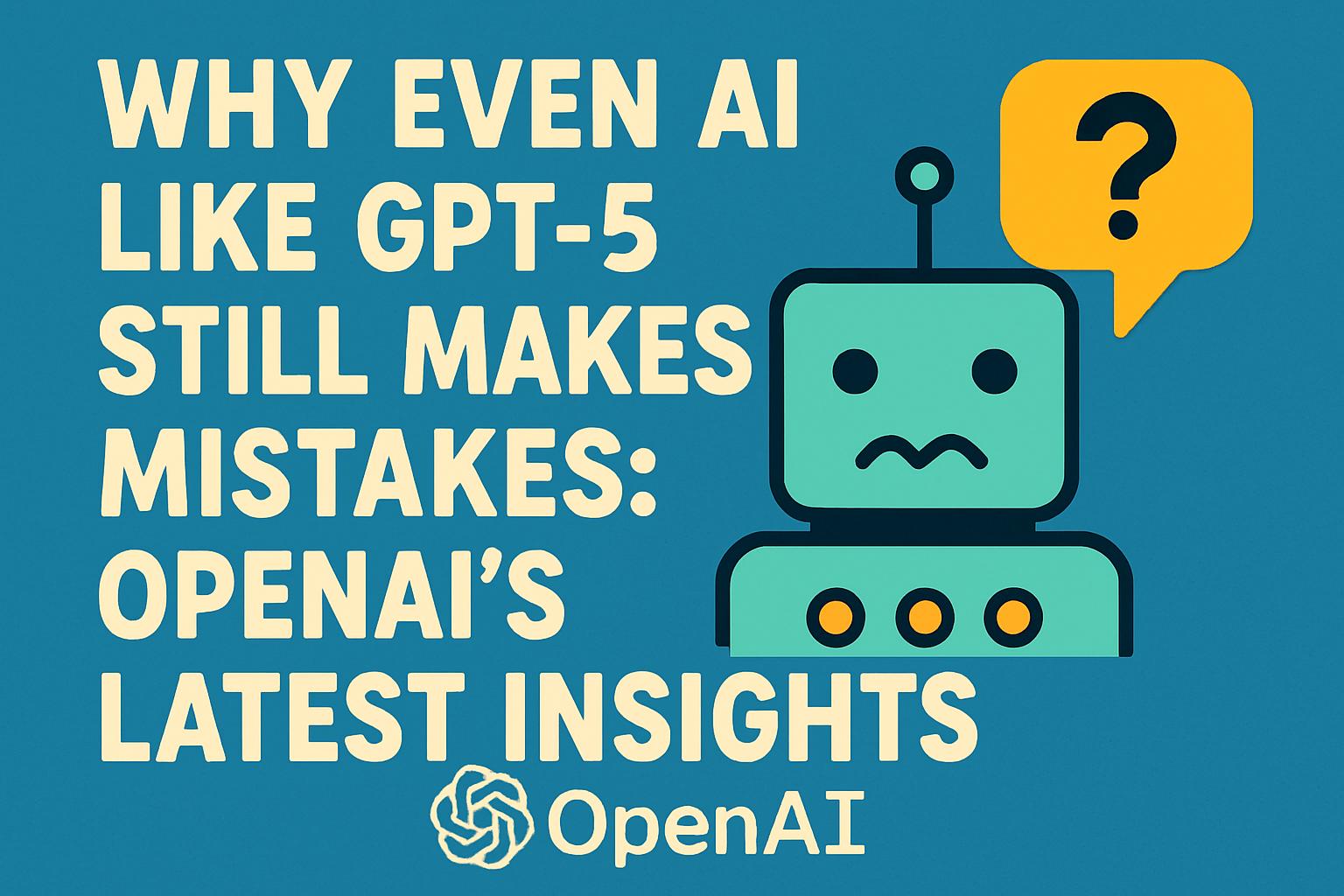Artificial Intelligence has continued to astound us with its rapid development, yet it still faces significant hurdles. A recent study released by OpenAI highlights a pervasive issue with advanced large language models (LLMs) like GPT-5: AI hallucinations, where the system confidently provides incorrect answers. Despite advancements, this remains a fundamental challenge that the research suggests may never be completely eradicated.
Misleading Confidence: The Hallucination Problem
Researchers engaging with a popular chatbot found it continuously provided inaccurate responses to questions about a scholar’s dissertation topic, and even gave incorrect dates when queried about a famous individual’s birthday. It turns out, when these AI models encounter uncommon information in their dataset, they respond with misplaced confidence, resulting in inaccuracies that are difficult to overlook.
Surface Learning and the Limits of Pretraining
The root of this problem lies in the foundational training process of these models. These systems are pre-trained to predict the next word based on large volumes of text, not with an understanding of factual accuracy. Therefore, while they master the syntax and style of language with remarkable proficiency, their grasp of the truth remains superficial.
- For high-regularity patterns, such as spelling or syntax, errors tend to diminish as the model scales.
- Random and specific facts, like personal birthdays, remain elusive and are prone to hallucination.
Reforming Evaluation Mechanisms
To address these hallucinations, the study advocates for a comprehensive overhaul of the current evaluation methods. Instead of merely assessing right or wrong answers, models should be penalized for confidently incorrect responses and rewarded for acknowledging uncertainty. This principle would represent a significant shift, moving away from a sole focus on accuracy rates, to fostering a culture of cautious honesty in AI responses.
The emphasis is not on expecting infallibility from AI but on creating a framework that allows and encourages these systems to admit when an answer is beyond their knowledge. This concept underlines the need for evaluation systems that value truthfulness over flawless performance.
As the landscape of AI continues to evolve, the insights from OpenAI suggest a paradigm shift is necessary—a shift towards models that can say, “I don’t know,” and benefit from doing so. This could pave the way for more reliable, trustworthy interactions with our advanced AI counterparts.

![[News] Bitcoin at a Turning Point? 10x Research Signals a Bullish Macro Shift Ahead](https://cryptoexplores.com/wp-content/uploads/2025/06/new20250616.jpg)
![[News] Binance Lists $HOME, the Gas-Free, Bridge-Free All-in-One DeFi App](https://cryptoexplores.com/wp-content/uploads/2025/06/news20250617.jpg)